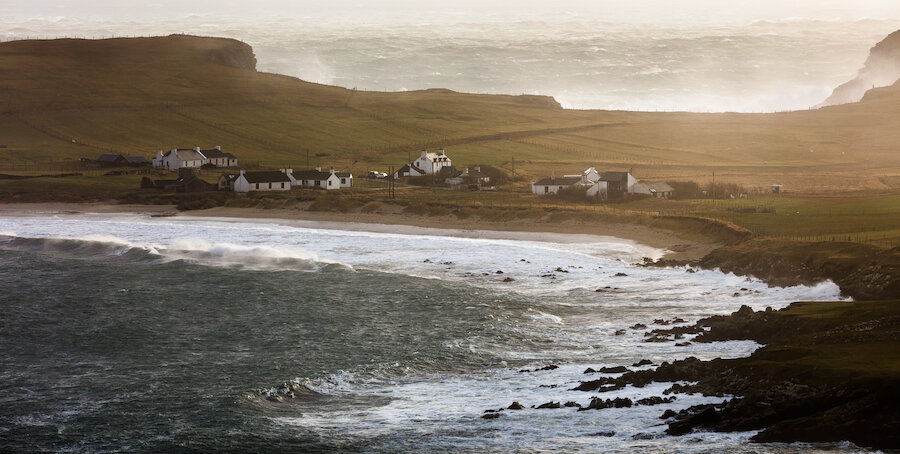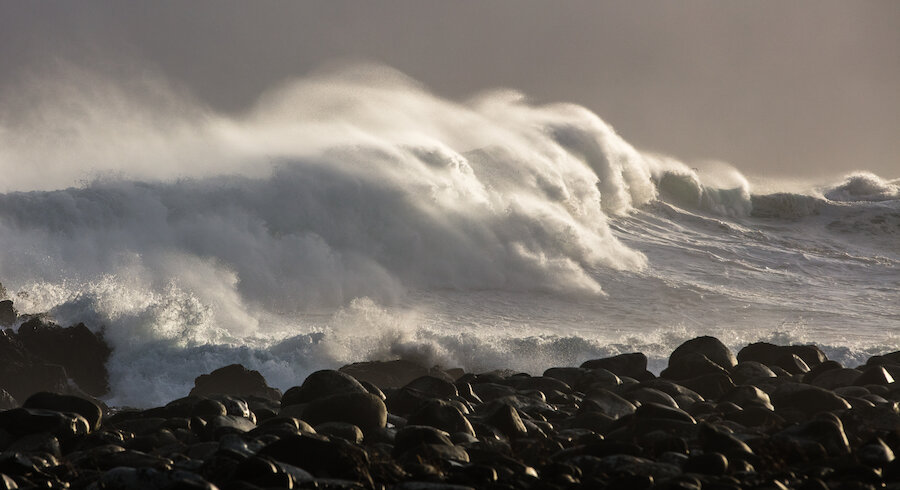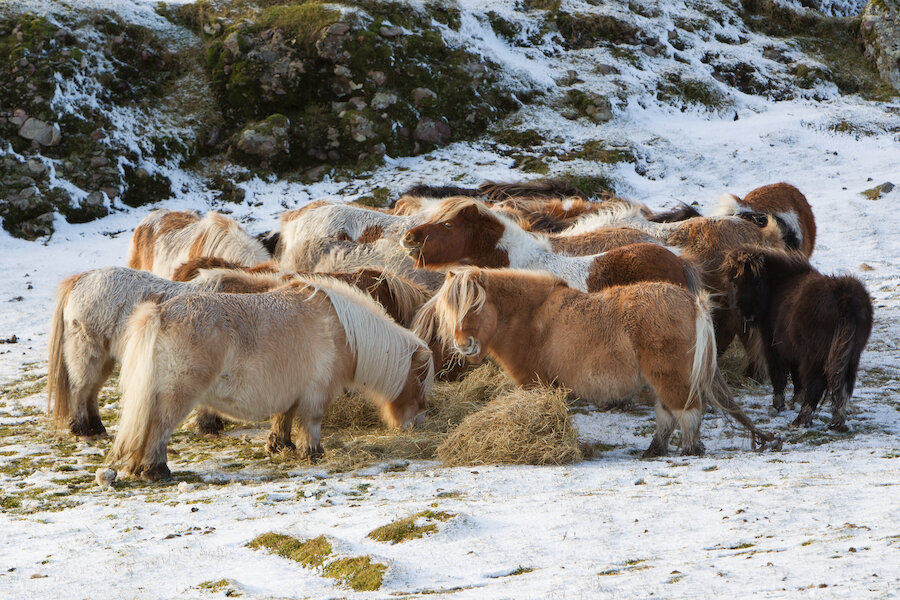For those who have never experienced island life, the day to day realities of living in the middle of the north sea during winter can seem mysterious, and sometimes even a little intimidating. We're often asked about the conditions in Shetland during the winter, and how we cope with them - so we thought we'd de-bunk some of the most frequent misconceptions about a Shetland Winter for you:
Question: Shetland’s really close to the Arctic Circle- are the winters really cold?
Answer: No, not really. In fact, Shetland’s winters are far milder than you might expect.
Despite being so far north, Shetland’s winters are relatively temperate due to the Gulf Stream warming the sea around the isles. The temperature in December rarely dips below freezing point, with the average temperature being around 2°C.
When you compare that to the average December temperatures of other places on the same latitude, such as southern Yukon Territory in Canada (-16.5°C) and St Petersburg Russia (-6°C), Shetland’s winters are pretty warm.
Question: Does Shetland get a lot of snow?
Answer: No, but we do get lots of wind.
The (relatively) warm sea air means that snow is only occasional during winter, being most common in January & February. When it does fall it rarely stays for long.
Shetland is, however, famous for the wind. The average wind speed for the year is Force 4 on the Beaufort Wind Scale (around 15mph), while the average wind speed in December is Force 5 (23 mph, a ‘fresh breeze’). Shetland’s weather can be unpredictable; one winter’s day can be calm and sunny and the next a howling gale.
Given the seafaring tradition of the isles, storms and gales are viewed with more significance than elsewhere in the UK, and this has left a mark on Shetland culture. According to Shetland folklore, the particularly stormy periods in autumn and spring were caused by two gods- Da Sea Midder and Teran- battling under the waves for dominance of the seasons.
While the winter storms mean we do sometimes need to tie down the trampoline and wheelie bins, they also make for excellent wave watching opportunities, and it's not unusual to see several intrepid photographers watching the wildest of our coastlines for the opportunity to get that perfect stormy picture.


